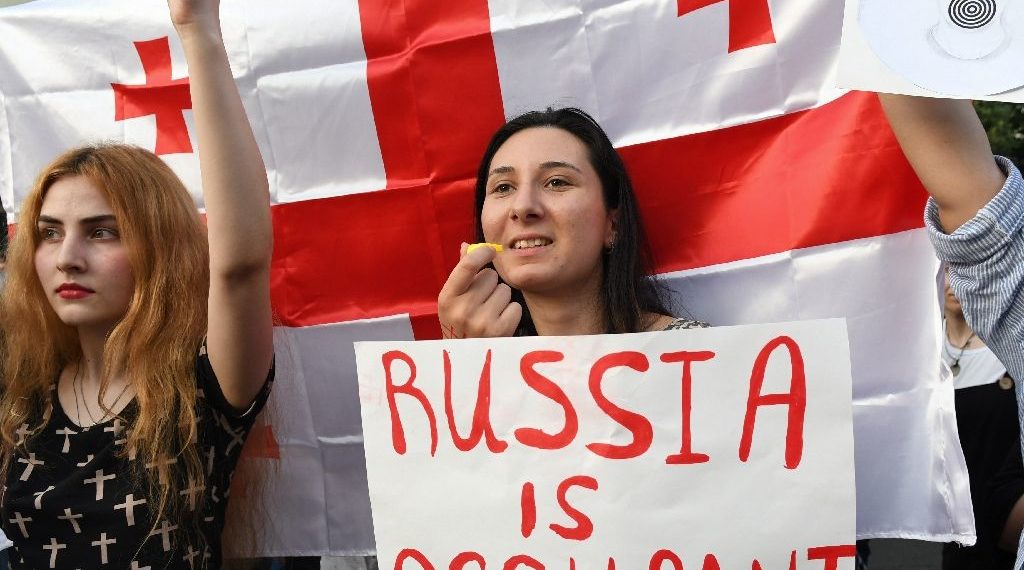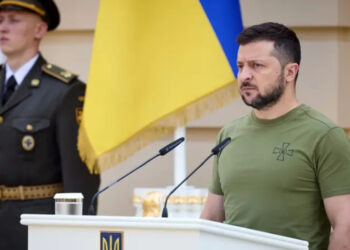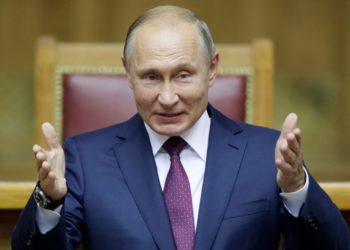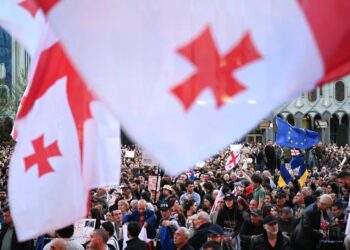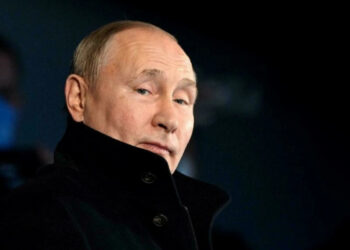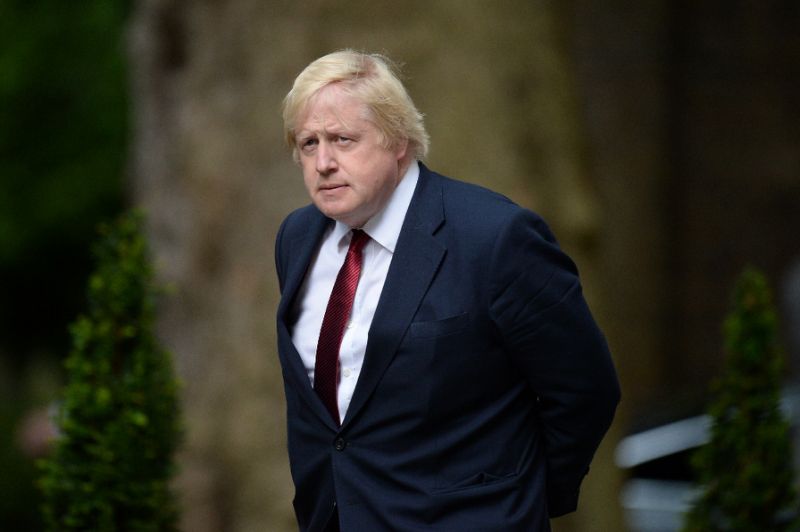With daily anti-Russian protests in Georgia’s capital Tbilisi and Russia banning direct flights between the countries, ties between the neighbors have reached a new low.
The protests in Georgia were sparked after a Russian politician, Sergei Gavrilov, gave the opening speech at a meeting of politicians from predominantly Orthodox countries in the Georgian parliament. Thousands of protestors stormed the parliament building and forced the Speaker of the Parliament to resign while demanding further reforms.
https://twitter.com/EurasiaView/status/1146516511336648706
For over a month, Georgians have been marching the streets with numerous anti-Russian signs. “Russia occupant” is one of the most prominent slogans, referring to Georgia’s claim that Russia occupied Abkhazia and South Ossetia in 2008 and preserves an illegal military presence in the entities.
However, the situation on the ground is much more complex and requires careful contextual consideration.
Protracted Conflicts of the South Caucasus
When the Soviet Union started to crumble at the end of the 1980s, ethnic tensions grew between the Abkhaz and Georgians over the latter’s move towards independence. Abkhazians feared that a sovereign Georgia would eliminate their autonomy.
Abkhazia remains one of the unresolved or protracted conflicts, a legacy resulting from the Soviet Union disintegration. The vacuum of power that followed the bloc’s collapse gave local populations a chance to pursue their national projects. In many cases, these plans overlapped and led to bloody wars. Abkhazia was no exception.
The war with Georgia in the early 1990s and the international blockade that followed led to immense economic and social changes for the territory’s population. Ever since, the Georgian-Abkhazian conflict remains unresolved, with the negotiation process deadlocked.
In 2008, the situation became even more complicated. The five-day war in South Ossetia (Georgia’s second disputed territory) led to the Russian recognition of Abkhazia’s and South Ossetia’s independence. Georgia’s refusal to sign a non-use of force agreement with Abkhazia led to the breakaway region agreeing to host the Russian military troops on its territory.
Abkhazia sees the presence of Russian military bases on its territory as a security guarantor against potential Georgian aggression. Georgia, on the other hand, considers Russia’s presence as an occupation.
Post-2008 Georgian-Abkhazian Conflict
After Russia’s recognition of Abkhazia, Georgia came out with a new framework on how to approach its conflicts with South Ossetia, Abkhazia, and now Russia. Tbilisi decided to put all of the disputes into a wider Russo-Georgian conflict, where Tbilisi considers both Abkhazia and South Ossetia as “occupied territory.” This approach has been further materialized into Georgia’s policies and rhetoric, becoming one of the main cornerstones of its foreign policy. Abkhazia and South Ossetia have been completely sidelined from the negotiation process.
After the developments in Crimea and Eastern Ukraine in 2014, Georgia quickly claimed that the events of 2008 were similar to what happened in Ukraine. This approach completely neglects the root causes and nature of the conflicts. In addition, even though such a simplistic approach proved to be rather effective for Georgia’s foreign policy, it only further deepened the division lines of the conflicts in Abkhazia and South Ossetia.
In fact, Georgia faces three separate conflicts: Georgian-South Ossetian, Georgian-Abkhazian, and with Russia. These conflicts do overlap but remain fundamentally different, and all require an individual, customized approach.
Georgia’s Counterproductive Measures
The latest protests in Georgia demonstrate just how ineffective and dangerous it is to lump together all of the conflicts and not deal with them on constructive terms. For some time, it seemed that the government benefited from the direct diplomatic confrontation with Russia, a lack of diplomatic relations, and the rhetoric of the occupying force.
However, one has to understand how that confrontation and attitude is perceived in Abkhazia. Tbilisi moving all of its focus on the issues it has with Moscow and completely downgrading the role of Abkhazia in finding a solution has created a sense of invisibility and unimportance among the Abkhazians.
#Georgia: A flavour of the protest in central #Tbilisi tonight. Many placards referencing ongoing #Russia occupation (20% of country) and police excesses during last week’s protests (two people lost an eye, 20 still in hospital – two in a bad way) pic.twitter.com/0HudogYI7K
— Ben Tavener (@BenTavener) June 23, 2019
Abkhazia’s institutions and its population are limited in how they can influence the negotiation process. This coupled with the isolation, limited development, and restricted access to modern and international expertise, leads to growing frustration and further reinforcement of the existing image of Georgia as the enemy.
It drives Abkhazia into opting for a more hardline position when it comes to anything related to engagement or discussions with Georgia. Recent statements of a Georgian Member of Parliament, Akaki Bobokhidze, regarding the war in Abkhazia in the early 1990s and Russia’s role caused outrage in the entity and led to Abkhazia temporary closing of the only crossing with Georgia.
Struggle for Freedom
This demonstrates just how complex the situation and context are, and how crucial it is for Georgia to keep different approaches to all of its conflicts and refrain from putting them all in the same basket.
Georgia might be seeing its confrontation with Russia and the subsequent cutting of ties as a “march for freedom.” However, it fails to understand that Abkhazia sees the last quarter-century of struggle with Georgia as its own path to freedom.
Georgia and Abkhazia will not reach a sustainable resolution to their conflict any time soon because it would require major investment into trust-building on both sides. However, trust-building measures on their own will not be enough: there is a need to address the growing frustration and feeling of insecurity within Abkhazian society. A tailored development agenda that addresses the needs of the people and tackles social and economic issues of Abkhazia’s population is needed.
The more Abkhazia and its population develop, the more incentives, skills, and narratives there will be to address the sensitive conflict-related issues constructively.
Disclaimer: The views and opinions expressed here are those of the author and do not necessarily reflect the editorial position of The Globe Post.

